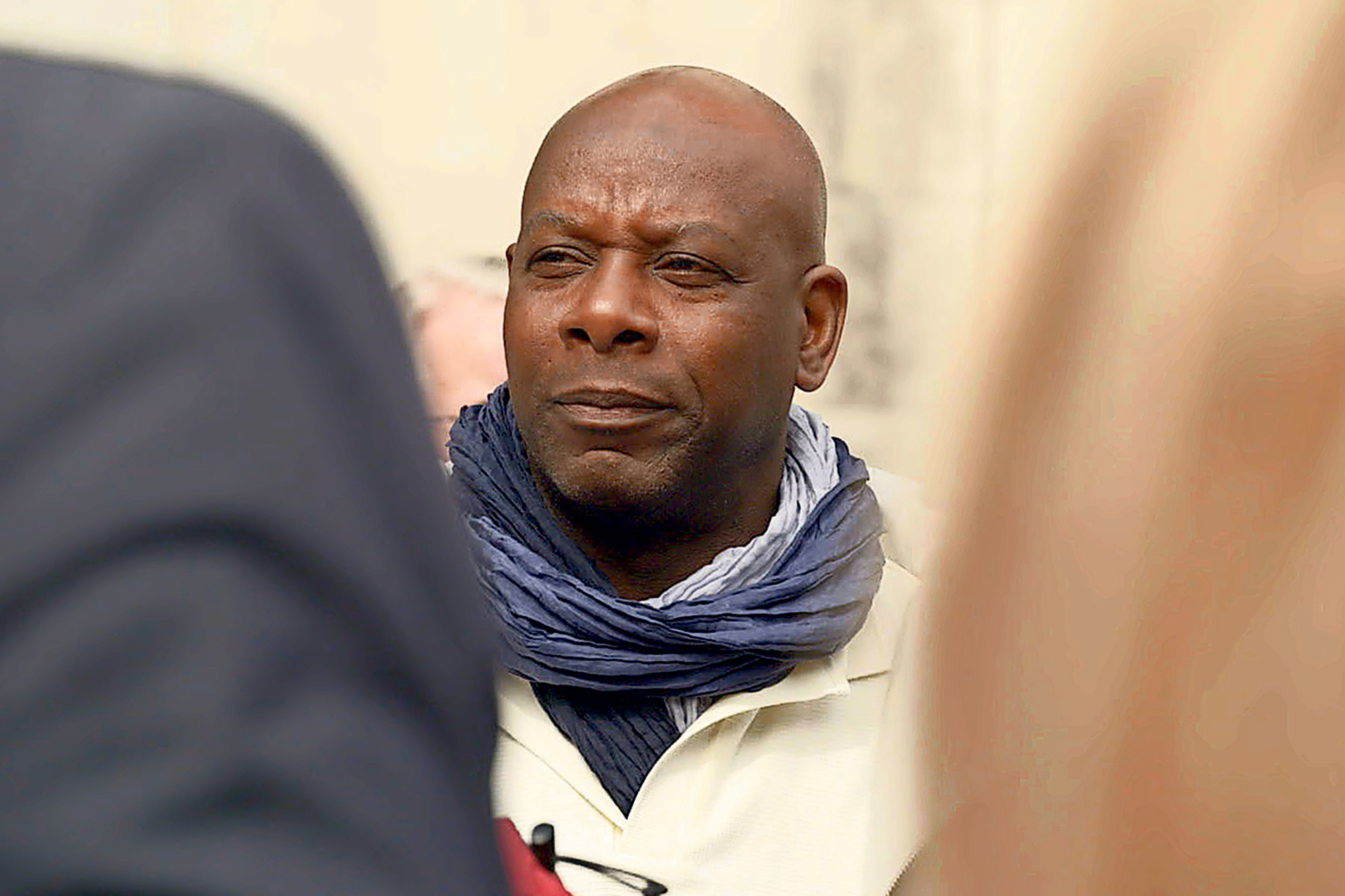In a week when a striker moved from Newcastle to Liverpool for £125m and Premier League clubs passed £3 billion in summer spending, a BBC film showed an earlier generation of stars outside the High Court chanting: “What do we want? Justice. When do we want it? Now.”
There are 11 in the group (‘V11’), and a couple of hundred more unseen. Some look broken. In the BBC documentary, Danny Murphy speaks of “the shame, embarrassment and guilt” from crushing investment losses and an average tax bill among the group of £1m. “People will assume I’ve got another four [million pounds],” says Murphy, who lost that amount. “Well, I ’aven’t.”
Former Fulham player Sean Davis sought refuge on the riverbank with his fishing rod but you could see in his eyes it was no real sanctuary. Big-name players who had thrilled Premier League crowds were now united in a new kind of team: a survival crew, pleading with HM Revenue & Customs to go easy on the huge amounts of tax they owe.
No hesitation was shown in the programme – Football’s Financial Shame: The Story of the V11 – in portraying the players as victims, which they were. Dozens lost fortunes on investment schemes placed in front of them in the 1990s and 2000s by Kingsbridge Asset Management, run by David McKee and Kevin McMenamin, who “deny any wrongdoing”.
A three-year investigation by the City of London Police concluded “at Commander level” that there was insufficient evidence to secure a conviction against Kingsbridge.
But the players were still described as “victims of crime,” a status they have clung to in their pleas for help.
With the ambiguity in that police report, the players were pitched into a shadow world where there was no legal recourse against Kingsbridge, but tax bills were rolling in because the players’ names were on the investments. So far, so recognisable as a tableau of personal tragedy.
Many of the players the BBC spoke to expected to be wiped out – to lose their homes.
And with the obliteration of all they had amassed came damage to their health and sanity. Davis spoke of alcohol being a pressure valve until he woke up in the morning wanting to kill himself.
The public are left with a thorny choice: to regard the “financial abuse” as a national scandal or a sad case of naivety, a failure of curiosity on schemes that were plainly too good to be true.
Newsletters
Choose the newsletters you want to receive
View more
For information about how The Observer protects your data, read our Privacy Policy
“We trusted them” is a poor defence. But observing this foreseeable calamity unfold, one wonders how much longer Britain can avoid adding a personal finance GCSE to the national curriculum.
No child should leave school with zero understanding of savings, pensions, account management and all the pitfalls – especially in this age of industrialised scams.
Rich people losing everything in the act of trying to get even richer tends not to invite public sympathy, especially when tax relief has been misused, as it was in the flawed tax credits for film investments introduced by the then Chancellor Gordon Brown in 1997.
This is a story of financial illiteracy and a colossal failure of diligence on the part of the players, whose trust was abused
This is a story of financial illiteracy and a colossal failure of diligence on the part of the players, whose trust was abused
From the film scheme, the V11 group were led into high-risk property schemes with deferred tax charges. Some of the buildings they invested in were grotesquely overvalued. Huge commissions were extracted. Bank loans were added to the players’ investment funds, adding to their complexity.
“What the government didn’t envisage was the tax advantages would be abused and turned into a financial product,” investment fraud lawyer Ben Rees told the BBC.
“I thought they knew better than me,” Brian Deane said of those advising him. Murphy, who signed “stacks” of papers without looking properly, claimed “thousands of football players have been manipulated by financial advisors and had their money taken.” A forensic handwriting expert said he saw “strong evidence” of players’ signatures being forged on documents.
When aggressive misuse of tax relief was challenged in court, HMRC won the right to have them declared illegal. But that process took a decade or more. Then the “brown letters” started landing on doormats – tax bills many of the players say they had no chance of paying (many wealthier players have been able to settle).
This is a story of financial illiteracy and a colossal failure of diligence on the part of the players, whose trust was abused. As victims of “financial grooming” they are right to campaign for a change in the law to protect victims of fraud.
But V11’s doom loop is that the HMRC tax bills are legally valid – and enforceable, however painful it is to witness their distress. Under current law, they aren’t being hounded for spurious charges, however broad the exploitation.
In a statement HMRC said: “We have a duty to collect tax when it is legally due. We recognise that dealing with an enquiry and a large tax liability can be stressful and we are absolutely committed to identifying and supporting customers who need extra help.”
With HMRC in hot pursuit, there is a haunting poignancy to the most famous words in the story of Michael Thomas, who won the league title for Arsenal in 1989. The line became true of his wealth, his life. As Thomas surged into Liverpool’s penalty box to score, the commentator Brian Moore called out: “It’s up for grabs now.”
Feature image: BBC



